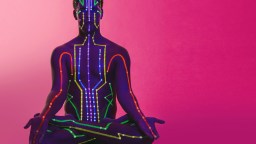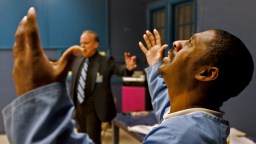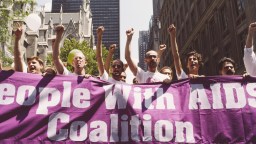Videos
All Stories
Look at Wall Street in 2008, and the White House right now. Diversity—of people and cognitive perspectives—is crucial for avoiding failure.
▸
7 min
—
with
Does religion help us survive? No more than moths thrive in flame, says Richard Dawkins.
▸
4 min
—
with
Both Republicans and Democrats blame the poor on each side, creating a terrible dissonance in our politics and in our nation’s psyche.
▸
7 min
—
with
Your brain is playing tricks on you. And most of the time you have no idea what is really going on.
▸
7 min
—
with
Ever seen someone and immediately thought that they look “shady”? Well, it could be based on cultural bias that depends on the density of the place you live.
▸
9 min
—
with
It wasn’t until after President Lincoln’s death that we would discover one of his most important lessons, hidden in his desk drawer.
▸
6 min
—
with
80% of adults are overly optimistic about life—where does that cognitive bias come from?
▸
6 min
—
with
Is science destined to crack the code of consciousness—and how would we even go about it?
▸
8 min
—
with
Get mad when you read the news these days? It’s more than just what you’re reading. When you perceives unfairness or inequality, says Molly Crockett, the brain receives it more-so as an attack on identity.
▸
7 min
—
with
Should America stay out of other civil wars in other countries? This expert argues for rebel forces winning on their own terms.
▸
7 min
—
with
Americans are inherently a little crazy. But now the crazy is being enabled by politicians in the White House and by the internet. How exactly did it get so bad?
▸
13 min
—
with
Heaven is a place on earth, says a major American thinker. And a certain awesome ’80s pop song.
▸
8 min
—
with
Here’s how the government improves your life without you knowing it.
▸
8 min
—
with
Capitalism has hijacked our emotions and rewired us for instant gratification—but we can reclaim our lives by practicing deep hope.
▸
5 min
—
with
To understand ourselves, our creativity and emotions, we must grapple with our pre-human existence.
▸
4 min
—
with
Here’s why you should always be looking for new income streams—even if you already have a full-time job.
▸
4 min
—
with
Shaka spent nearly two decades in prison after pleading guilty to second-degree murder, and spent 7 of those years in solitary confinement. But he says that it’s life after prison that can be much more shocking.
▸
8 min
—
with
Meditation is a lot more than just chilling out and reflecting. It can actually rewire your brain to become a better person.
▸
6 min
—
with
Half the pain of paying taxes is having no control over where it goes. This Harvard professor has a great idea to give people more of a voice… and it involves just a very slight change in something as boring as a parking ticket.
▸
4 min
—
with
Who will live on the this brand-new floating nation in the South Pacific—and how?
▸
7 min
—
with
Here’s what Israel Guillen learned about life by studying 8 hours a day during his 22-year prison sentence.
▸
8 min
—
with
Have you heard the one about the U.S. Open and Yom Kippur? You’re about to.
▸
5 min
—
with
From the depth of the AIDS crisis, a new community discovered itself and defeated victimhood.
▸
8 min
—
with
Don’t settle for comfortable and familiar thoughts, reach for what you don’t know, says Harvard professor Stephen Greenblatt.
▸
7 min
—
with
What makes a great book… well… great? Author Salman Rushdie gives us his idea on what separates the classics from the rest of the class.
▸
10 min
—
with
Is there life on other planets? Harvard biologist Jonathan B. Losos has an interesting theory that since there are so many Earth-type planets in our galaxy alone that there’s a good chance that there’s some humanoid looking (at least in the bipedal sense) creatures out there, too. Just like a Hollywood movie.
▸
9 min
—
with
Will A.I. take us over, and one day look back on this time period as the dawn of their civilization? Richard Dawkins posits an interesting idea, or at the very least a premise to a good science-fiction novel.
▸
3 min
—
with
Why do first-world ailments get cured faster than global health crises? Because Big Pharma doesn’t serve sick people, it serves rich people—let’s change that.
▸
4 min
—
with
Rabbi Darren Levine explains how the psychology of happiness intersects with religious practice.
▸
8 min
—
with
We are on the verge of the ‘Total Work’ dystopia, a prediction first made in 1948. Can Universal Basic Income wake us from our stupor?
▸
8 min
—
with





























